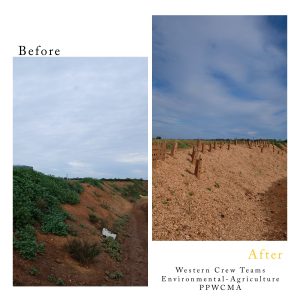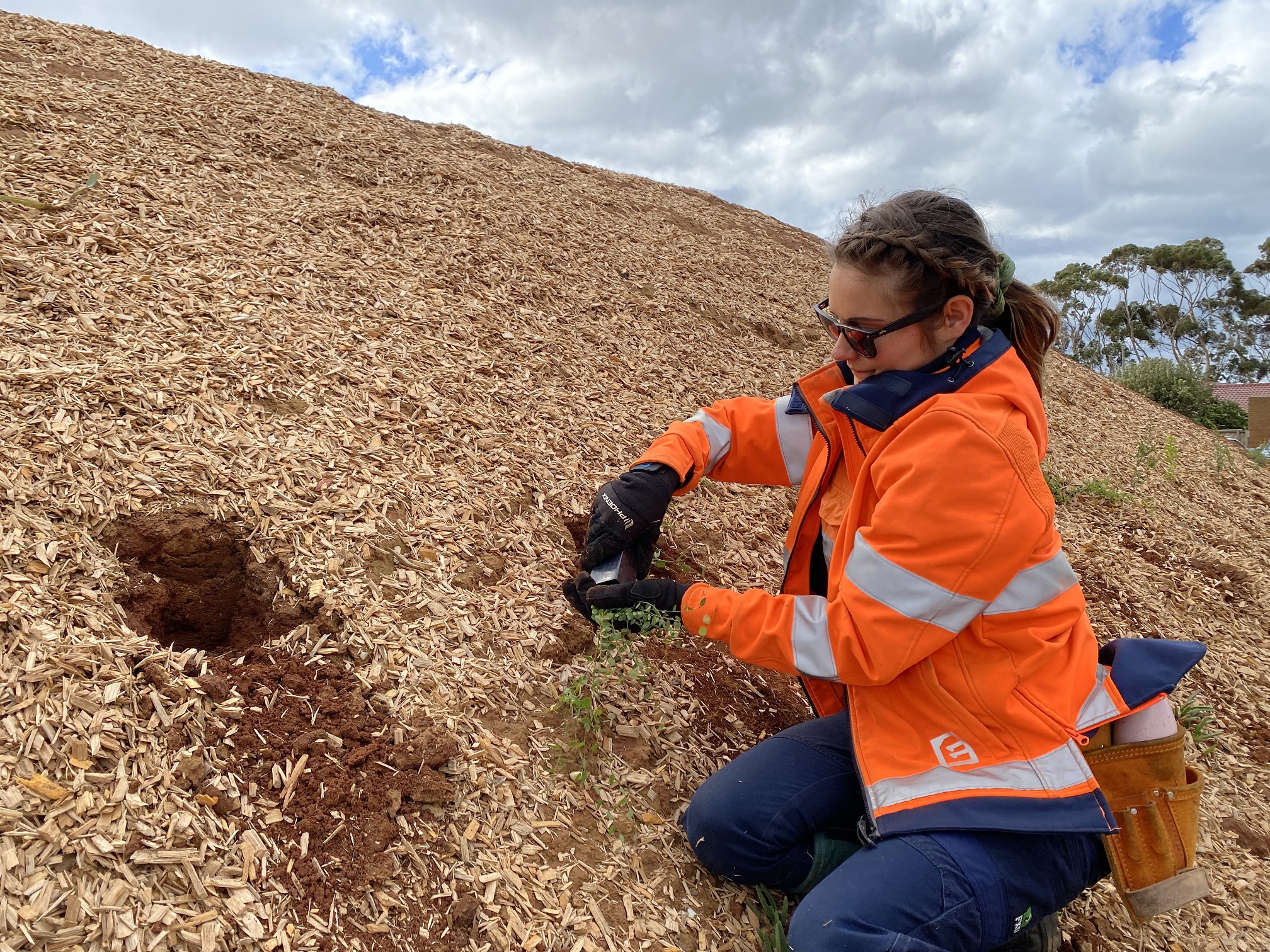Bring on the good bugs: Native vegetation insectaries trial underway
After 18 months in the making, a trial of native vegetation insectaries kicked off in April this year at two vegetable farms in Werribee South. This is a focus area of the VegNET Victoria Phase 2 project, and the trial will aim to test and showcase the multiple benefits that native vegetation insectaries can provide to vegetable growers. VegNET – Victoria Regional Development Officer Dimi Kyriakou explains more.
On-farm insectaries are areas of flowering plants that attract and maintain beneficial insect populations by providing them with a source of shelter and alternative food sources, particularly pollen and nectar.
The goal of on-farm insectaries is to enhance the diversity and abundance of beneficial insects on a farm to build resilience, particularly against seasonal variations and pest incursions. Acting as a ‘fixed home address’ for beneficial insects to interact with a nearby vegetable crop, they complement cultural and biological control methods of an integrated pest management (IPM) program.
There are many advantages of planting native vegetation compared with non-native vegetation. This includes a reduced likelihood of harbouring pests and diseases that can affect crops; longer flowering windows; lower maintenance and water requirements; and increased habitat and connectivity that better support native biodiversity, including native beneficial insects.
Planting an insectary of flowering native vegetation for beneficial insects is a simple farm practice that can be achieved at a relatively low cost and without affecting existing production.
Werribee South trial in focus
Vegetable growers Anthony Mason at Mason Fresh Produce and Jason Agosta at AAA Farms are working with Karen Thomas at the Port Philip and Westernport Catchment Management Authority (PPWCMA) to trial native vegetation insectaries in Werribee South. Since April, they have been hosting a diverse range of native vegetation plantings on dam walls and small test strips along drainage channels to encourage beneficial insects into the area.
This will not only encourage natural predators to attack pests in the nearby vegetable crops, but it will also improve some of the most under-utilised areas on the farms. The plants can potentially increase the integrity of the dam walls by helping to prevent erosion, act as a wind buffer in thoroughfares and filter runoff to reduce sediment and nutrients from entering waterways.
This trial was driven by an industry event around two years ago where growers were updated on a strategy levy investment under the Hort Innovation Vegetable Fund, Field and landscape management to support beneficial arthropods for IPM on vegetable farms (VG16062). The PPWCMA was invited to present at the grower meeting regarding trials on several horticulture farms in the Yarra Valley using indigenous native plants.
From this presentation, growers showed interest in testing out a similar concept that would suit vegetable farms in the Werribee South district and complement their existing IPM efforts. There was a win-win outcome involving the PPWCMA as the insectaries benefit growers’ production systems and the environment.

Choosing the native plants
Insectaries are not necessarily regular ‘native plantings’; there are much more complex interactions that occur which should be considered when planting an insectary, including species selection.
The native plants chosen for the Werribee South trial have a variety of flower structures which will support a diverse range of beneficial insects by providing habitat and nectar. It is expected that the flowering plants will attract ladybirds, lacewings, parasitic wasps and hover flies, all of which are extremely beneficial for seeking out pests such as aphids and caterpillars in vegetable crops.
The plants used were a mixture of shrubs such as:
- Leotospermum (tea tree), a known nectar plant for beneficial insects
- Myoporum (boobialla)
- Correa
- Australoma (cranberry heath)
- Brachyscome (basalt daisy)
- Acacia (heath wattle) and
- Dianella (flax lilly).
Shallow rooted groundcovers included:
- Carpobrotus (pigface) and
- Dichondra (kidney weed).
A full plant list is available here.
As the trial is in its early stages, we’ll keep growers and industry members updated on its progress over the coming months on how well the plants establish and the benefits and lessons for the future.
In the meantime, this fact sheet shares more information on the benefits of native vegetation insectaries.
New RDO for Victoria: Dimi Kyriakou
Earlier this year, I took on the VegNET Victoria Regional Development Officer (RDO) role from Hugh Wardle. I am based in Melbourne but grew up in Yarrawonga in north-east Victoria, where my family ran a fruit shop for 43 years.
My background is in journalism where I have written and edited technical magazines for the construction industry and business publications. Some of you might remember me from my time at AUSVEG where I edited Vegetables Australia and Potatoes Australia magazines.
I joined RMCG in March 2020 and am looking forward to continuing the good work of VegNET so far. Over the last few weeks, I have been able to visit growers in our northern, western and south-eastern regions, and catch up with others at industry events. Please feel free to contact me on 0488 124 626 or dimik@rmcg.com.au to chat about any issues you may have on-farm and I will do my best to link you with R&D that could help to make your business more productive and profitable.
Find out more
Please contact VegNET – Victoria Regional Development Officer Dimi Kyriakou on 0488 124 626 or email dimik@rmcg.com.au.
More information on farm biodiversity can be found on the PPWCMA website.
VegNET – Victoria (South-East, West and Northern Regions) is a strategic levy investment under the Hort Innovation Vegetable Fund.
This project has been funded by Hort Innovation using the vegetable research and development levy and contributions from the Australian Government.
Project Number: VG19012
Cover image: The dam wall is prepared for native vegetation plantings at AAA Farms. Image courtesy of Dimi Kyriakou.

